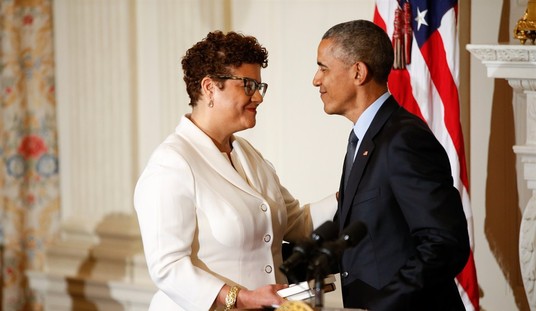One of the stranger twists in the gun control debate took place when President Trump met with representatives from the video game industry to discuss whether or not exposure to violence in the virtual world was spawning violence in the real one. Of course, that got me to thinking about a related subject which has been in the news quite a bit lately, specifically, scientists who have been tossing around the idea that this might not even be reality and we’re all living in a vast computer simulation. (I’ll get back to how this ties into Trump’s meeting and the gun violence question in a little bit.)
The immediate gut reaction for many is to conclude that this is all just a thought experiment or some professors at Cal Tech who were a little too excited about that whole legalized pot thing. But some pretty smart people have been looking at the question and not really laughing. Elon Musk, who is no slouch when it comes to thinking, has put the probability that this is all a simulation at 99.99%, though some feel they’ve debunked the idea.
This hasn’t stopped plenty of people from looking for that elusive “glitch in the matrix” which might prove it. Arguments include questions of why the theory of relativity breaks down when you begin talking about quantum mechanics and how a particle can suddenly appear somewhere only when you’re looking for it and disappear again as soon as you look away. On a more anecdotal level, laymen continue to debate apparent breaks in reality as defined by what’s known as the Mandela Effect. That’s best demonstrated by how most of you young people know about some cartoon animals named The Berenstain Bears while so many people born before a given period (including yours truly) know for a fact that they were The Berenstein Bears originally, but at some point… they changed.
Just recently I was listening to an episode of the BBC series The Infinite Monkey Cage which explored the whole simulation universe topic with some experts from Cambridge. (That’s a great series by the way, which covered a different science topic every week, hitting things ranging from the language of animals to what happens when black holes collide. I highly recommend it.) One of their geeks was talking about the premise required if we’re to believe this theory is possible.
First of all, mankind’s mastery of technology would have to advance so far that we would essentially be “post-human” and operating on some vastly expanded level of technology that we can’t even imagine yet in order to create such a simulation. He postulated four possible outcomes for humanity which essentially break down like this:
- Mankind doesn’t survive long enough to evolve to the point where we could simulate all of creation, so the idea is nonsense.
- We survive long enough to manage such AI feats, but there’s no point in re-running the past so this is probably still reality.
- We survive and do find a reason to rerun the past and create simulations of the universe, but creating consciousness is so difficult that only one of us is the “real” test subject avatar and everyone else is an NPC (non-player character).
- We develop unlimited computing power to the point where we’re all simulated, conscious beings and this is almost certainly a simulation.
In the first two scenarios, we are real and left to deal with the morality questions wrapped up in existing in the real world. But in the latter two scenarios, nothing in our lives truly has meaning. Whether we are the solo player in this game or we are one of more than seven billion players, nothing we do really matters. If we take off on a murder spree or lead virtuous lives, the program eventually ends and no damage or good that we do remains behind after our programmer flips the switch.
That’s where we come back to the question of the President’s meeting and these nagging questions about video games and violence. Nothing matters in a video game because you eventually turn it off, it starts over later with no changes, and nothing you do has any lasting impact. But if you’re the sort of person who actually can’t recognize the transition from the Playstation to your actual 9-5 job, you were probably going to eventually go off the rails either way. It’s probably far more dangerous to begin playing around with ideas of living in a simulated universe than spending a couple hours playing Grand Theft Auto. If we start wondering whether the entire world is essentially a video game, what use are pesky morals and religious conviction?
I suppose my point here is that worrying over whether or not we’re living in a simulation is pointless. If it is, at some point the switch will be thrown and we won’t be aware of it anyway. If it’s not, then your lives and actions have meaning. So what do we do? You can go shoot up some public places or try to help the disadvantaged and improve the world. No matter whether it’s real or a simulation, why would you not attempt to live the better life?








Join the conversation as a VIP Member